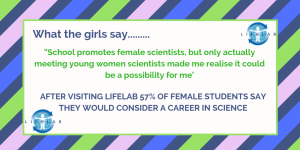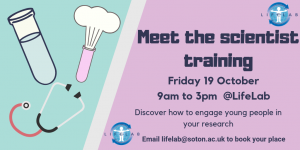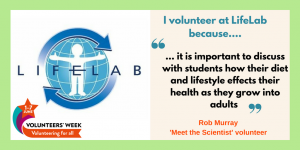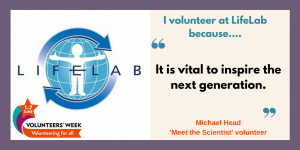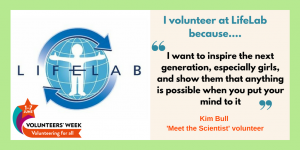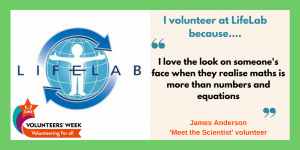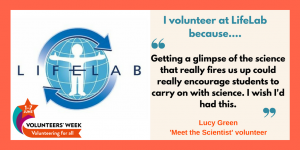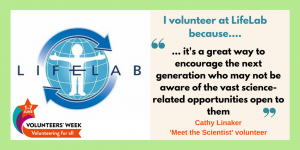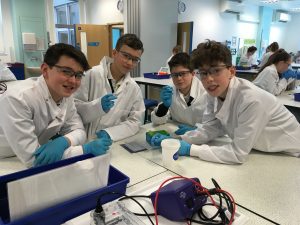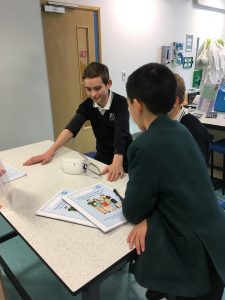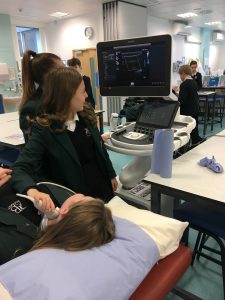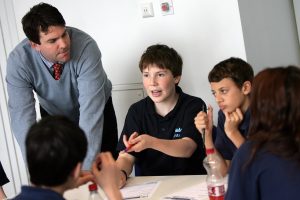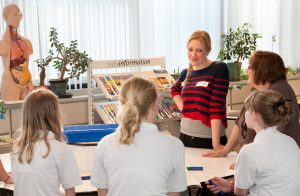When asked to describe scientists, teenagers often use words implying that they belong to an exclusive club which is inaccessible to them. Science might be a subject they have to do at school, but thinking about a career in the subject is not something they would necessarily consider, according to research by LifeLab’s programme leader Kathryn Townsend Woods.
In an effort to bridge that gap part of the LifeLab programme actively promotes ways to provide teenagers with a more realistic view of scientists and their work. The Meet the Scientist initiative makes the connection between students carrying out their secondary education at institutions in the UK and (often early stage) researchers at higher education institutions, providing secondary-level school students with opportunities to meet and talk to scientists, both from academic and clinical backgrounds, and to explore or challenge their views of scientists.
As a team we are committed to providing inspiration to teenagers and specifically female students. Part of our mission is showing it is as normal for girls to want to be scientists as boys. To ensure we maximise opportunities to normalise the gender imbalance, we always have a ratio of 2:1 female:male scientists who volunteer for out Meet the scientist sessions.
Of the 300 researchers on our database, 202 are female and 95 are male, which is fantastic representation from our female researchers. The schools decide which classes to bring to LifeLab and slightly more female teenagers have attended. Here is some of our evaluation data, from which we see encouraging patterns.
‘Did meeting the scientist change your mind about what scientists are like and/or what they do?’
59 per cent of students agreed of which 64 per cent were girls and 57 per cent boys
‘Did you find what the scientists had to say interesting?’
85 per cent of agreed of which 86 per cent were girls and 84 per cent boys.
Strikingly, when asked ‘Following your visit to LifeLab today, would you consider a career in science, health or the NHS?’
52 per cent of students agreed of which 57 per cent were girls and 45 per cent boys.
Follow-up questions reveal interesting perceptions, worryingly the idea that scientists and engineers can be women is still a surprise.
“I met girl scientists which proves both genders can be scientists”
“I found it interesting women are now becoming engineers”
However, some comments really reflect the positive impact these sessions can have:
“School promotes female scientists, but only actually meeting young women scientists made me realise it could be a possibility for me’
“Meet the scientist was awesome – it really inspired the kids and was the first contact most of them have ever had with real science”
